Getting ready and mentally preparing yourself for your first pregnancy can probably be somewhat intimidating, especially, when you are diagnosed with polycystic ovarian syndrome (PCOS). You may know that your journey to motherhood may not be as smooth as a normal woman without PCOS. And if you are one among the 10 million people with PCOS and you are trying to conceive, do not get overwhelmed! Just making small, simple, and positive changes in your lifestyle like eating right, keeping fit, watching your weight, and taking the best prenatal vitamins will make a huge difference in improving your chances of getting pregnant and ensuring a healthy pregnancy despite having PCOS.
Table of Contents
What is Polycystic Ovarian Syndrome (PCOS)?
Studies show that PCOS is a common condition related to hormones, especially among women of reproductive age, in which the ovaries don’t always release an egg at the end of the menstrual cycle. Studies show that 1 out of 6 women have PCOS. Women with PCOS may experience many common symptoms like irregular periods, prolonged or over-delayed periods, unwanted hair growth due to excess androgen (male hormone) levels, acne, fatigue, stress, and trouble sleeping.
Read: 13 PCOS Symptoms You Should Not Ignore & Natural Treatment
PIN AND SAVE ME
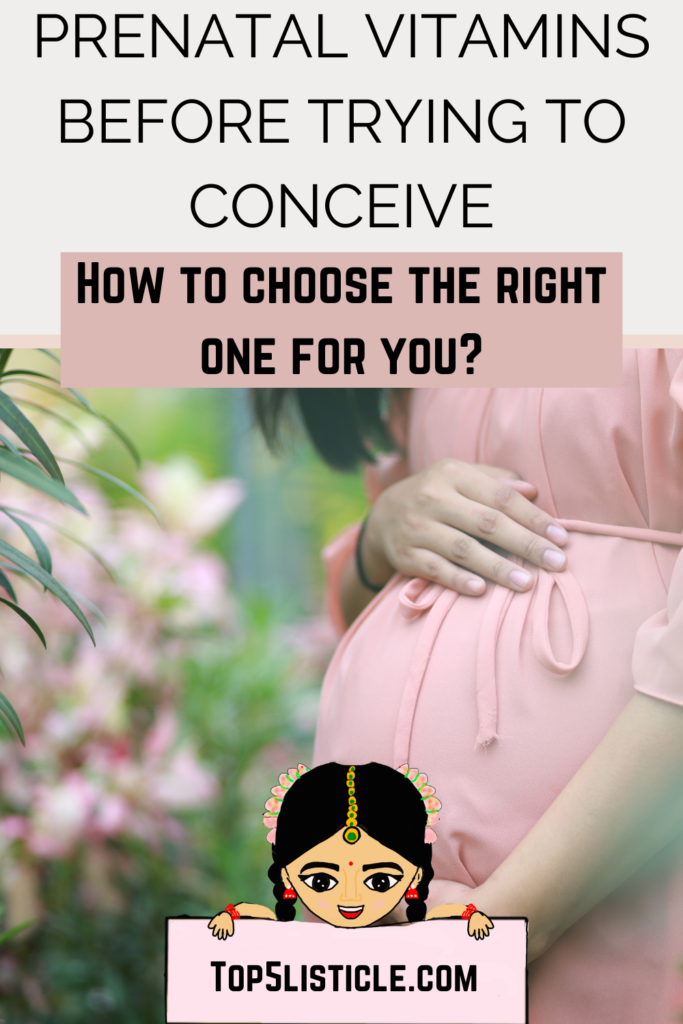
Top 8 Essential Nutrients To Consider in the best prenatal vitamins for PCOS
1. Folate or Folic Acid
If you are pregnant or you are trying to conceive, then you get to hear it all the time: Don’t forget to take your folic acid!! Yes, folic acid is important and is considered to be a ‘pregnancy superhero’ as it can help to prevent neural tube defects.
Here’s what each woman needs to know about folic acid and folate.
What is the difference between Folate and Folic Acid?
Folate occurs naturally in food whereas Folic acid is a synthetic man-made form of Vitamin B9. Since folic acid is synthetic, it does not easily get absorbed. In fact, it takes a long time for your body to metabolize it.
Folic acid is used in multivitamins, prenatal vitamins, and other supplements.
Risks Posed To Your Unborn When Folate Is Not Taken During Pregnancy
- Not only is folate helpful during pregnancy, but it is a vital prenatal supplement that needs to be taken before pregnancy. Folate, a.k.a vitamin B9, is a component of red blood cells and is essential for the development of the central nervous system in embryos, which is why the requirements for folate are higher during pregnancy.
- The formation of a neural tube starts as early as 5 weeks into pregnancy. This is when women find out that they are pregnant.
- Neural Tube defects are serious congenital malformations that occur in the initial few days after fertilization when the embryo begins to grow. The most common one is Spina Bifida. In this neural tube defect, the neural tube does not close all the way as it should leading to damage to the spinal cord and nerves.
Some Common Food Sources of Folate
- Dark green leafy veggies (spinach, broccoli, asparagus, brussels sprouts, lettuce)
- Sunflower seeds and peanuts
- Seafood
- Fruits like Oranges, mangoes, pomegranate, kiwi, grapefruit
- sweet corn
Directions
The recommended daily allowance (RDA) for folate or folic acid or vitamin B9 for pregnant women is 600 mcg.
It is generally advised to start taking extra folic acid at least three months before you plan to conceive as the neurological development occurs within the first four weeks of pregnancy before most of the women don’t even know that they are pregnant yet.
2. Iron
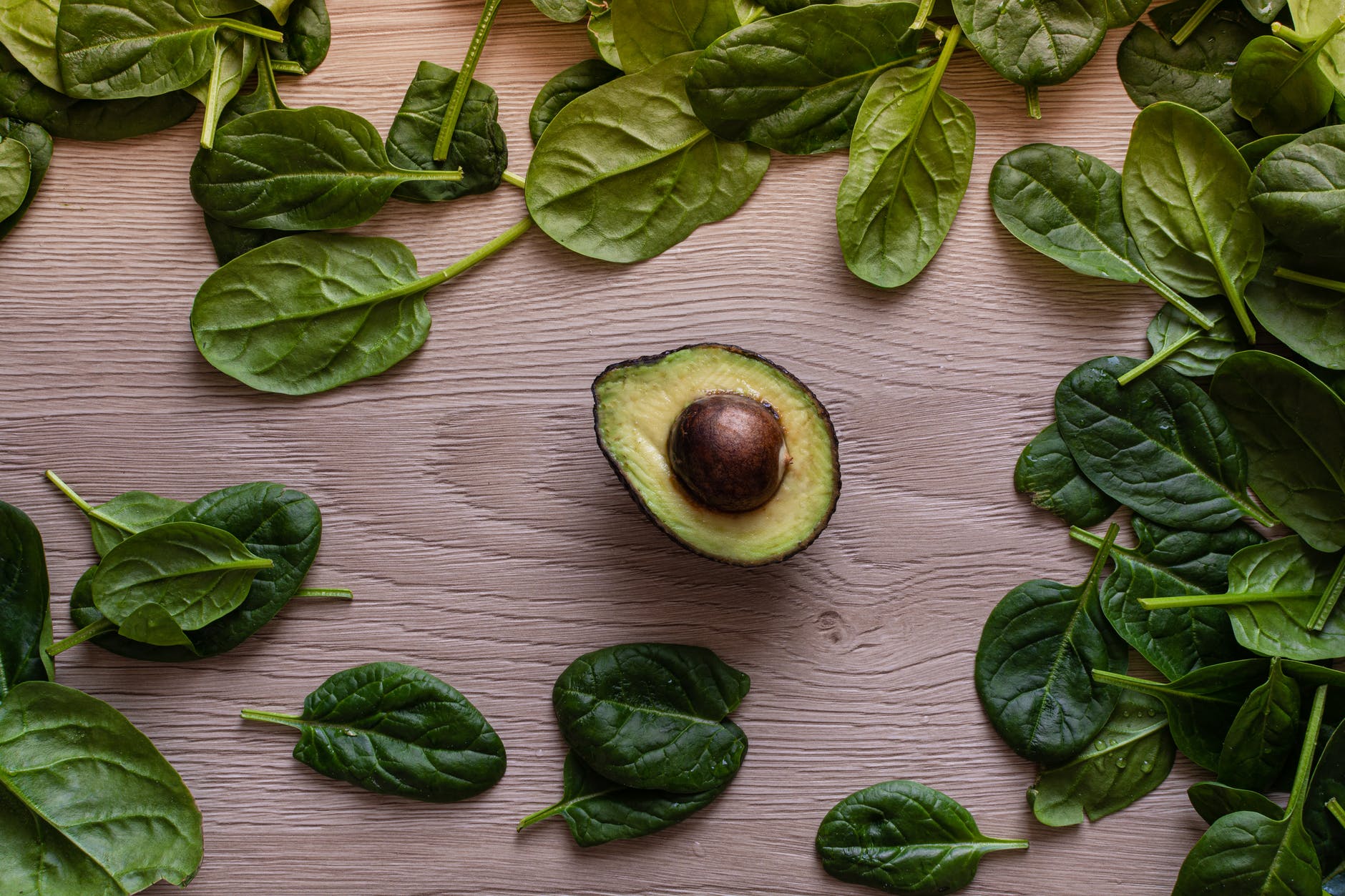
Have you ever been curious as to why iron is so important for you during your pregnancy? You need to understand the role played by iron to appreciate its importance and the need for additional intake of iron through the best prenatal vitamins.
During pregnancy, your body supplies blood and oxygen for the development of your growing fetus and placenta. So the demand for iron goes up to keep up with the increase in blood supply. Your iron needs will probably double, especially in the last ten weeks of your pregnancy.
It is a known fact that infertility in PCOS is primarily caused by irregular ovulation and so iron is certainly important for those with PCOS. Iron also helps in preventing anemia, a common pregnancy-related condition that is caused by iron deficiency.
Some Common Food Sources of Iron
- Spinach
- Legumes – Peas, Lentils, soybeans
- Red meat and seafood
- Pumpkin seeds and Quinoa
- Raspberries
- Dried fruits (apricots, prunes, raisins)
Directions
The RDA for iron for pregnant women is 27 mg but it is always better to check with your doctor who would know about your pre-existing condition. Sometimes iron, in high doses, can cause effects like nausea, and constipation.
3. Calcium
During pregnancy, calcium that is stored in the expecting mom’s body is the main source of the nutrient for the growing baby. A baby’s bones grow the most rapidly in the third trimester and that is why it is so important to ensure that you are taking some calcium in your prenatal – to make sure that you and your growing baby have strong bones and teeth.
Some Common Food Sources of Calcium
- Seeds such as poppy seeds, sesame seeds, chia seeds, and Almonds
- Yogurt
- Leafy greens
- Whey protein
- Sardines and salmon
- Beans and lentils
Directions
The RDA for calcium for pregnant women is 1000 mg.
PIN AND SAVE ME
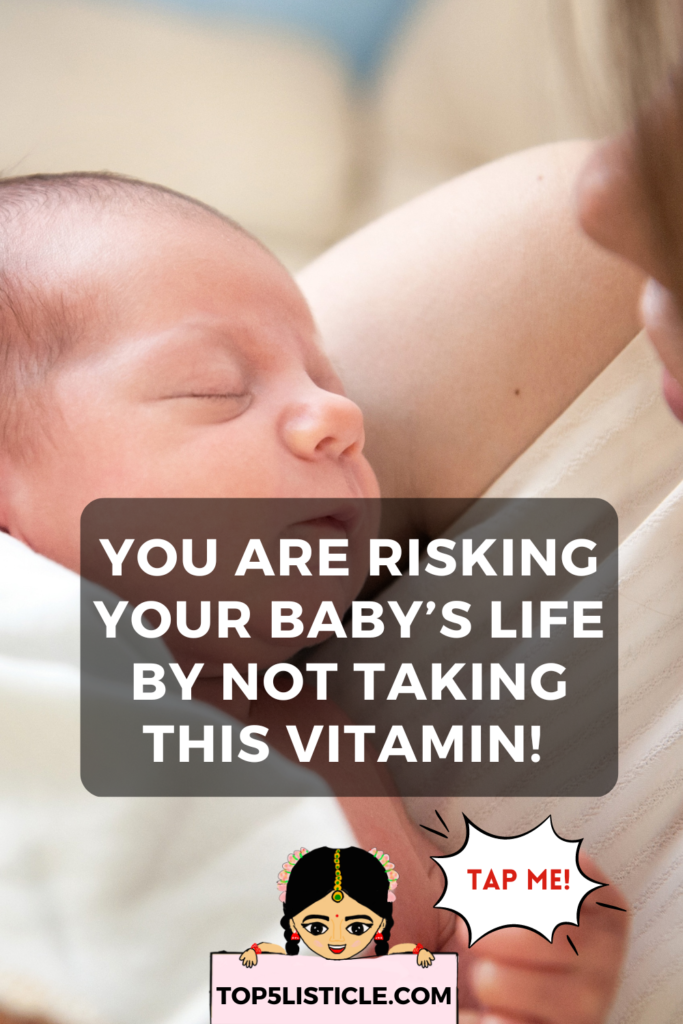
4. Vitamin A
Vitamin A helps in building your growing baby’s immune system, as well as in the development of your baby’s eyes, ears, limbs, and heart. Although we consume foods rich in Vitamin A regularly, it is one of the few vitamins that we need to keep track of so that excess vitamin A does not become harmful to us.
Many pregnant women wouldn’t need to supplement with vitamin A unless their doctor advises them to do so.
Some Common Food Sources of Vitamin A
- Sweet potato
- Pumpkin and carrots
- Whey protein
- Sardines and salmon
- Beans and lentils
Directions
The RDA for vitamin A for pregnant women is 750 mg.
5. Vitamin C & Vitamin E
Vitamin C helps your body make progesterone which is necessary for maintaining a healthy and safe pregnancy. Vitamin C and Vitamin E play an important role in fetal collagen production and support your immune system.
Some Common Food Sources of Vitamin C
- Dairy & fortified plant-based milk (almond, soy)
- Products like Cheese, Yogurt
- Whey protein
- Almonds & Figs,
- Seeds like poppy seeds, sesame seeds, and chia seeds
- Sardines and canned salmon
Directions
The RDA for vitamin C for pregnant women is 80mg.
Some Common Food Sources of Vitamin E
- Sunflower, and soybean oil
- Sunflower seeds, Almonds
- Red bell pepper
- Peanuts, peanut butter
Directions
The RDA for vitamin E for pregnant women is 15mg.
6. Vitamin D
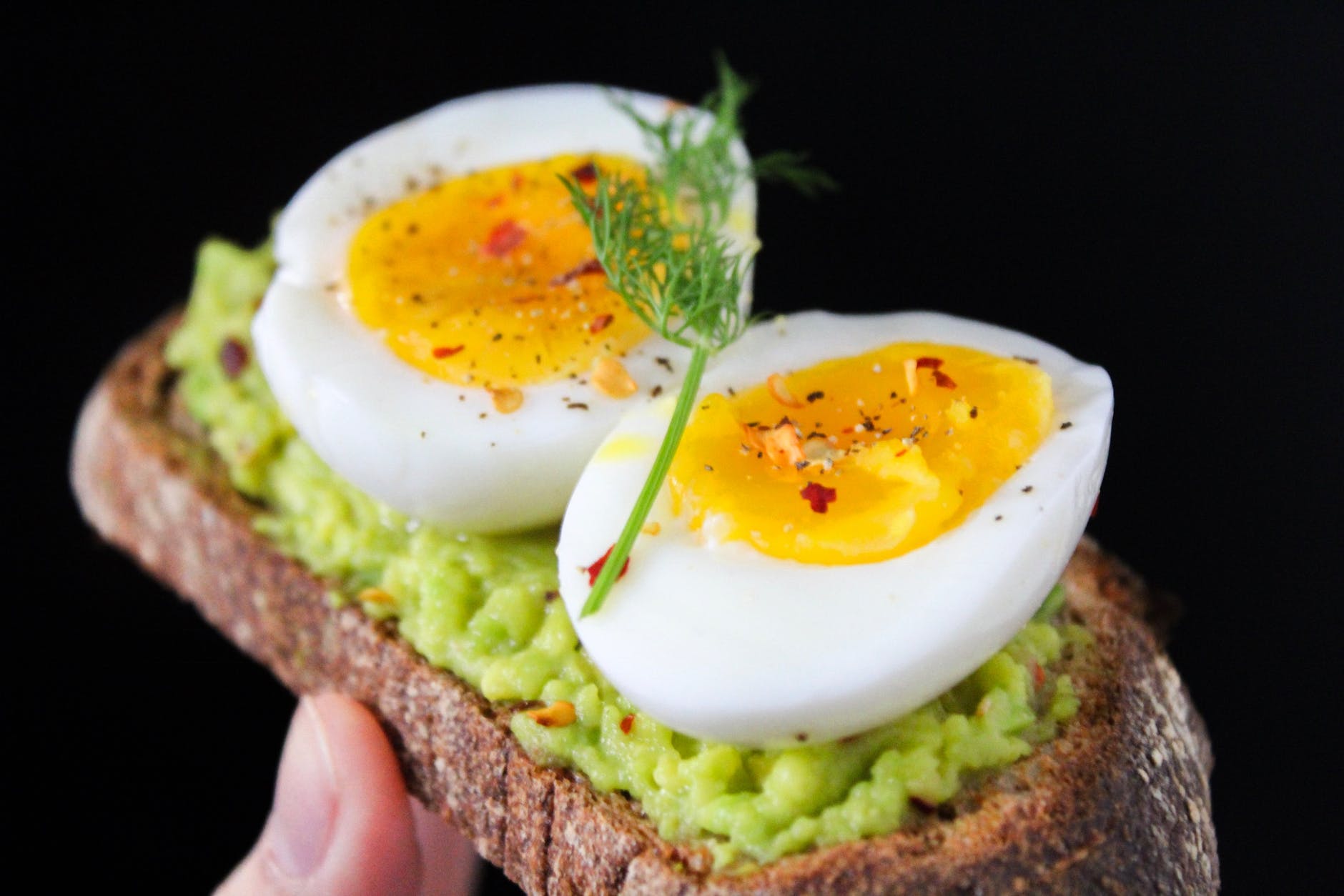
Vitamin D and pregnancy are important and both together play a key role in helping PCOS-related infertility women get pregnant. Research shows that about 80% of women with PCOS are deficient in this important vitamin. So, including Vitamin D in your prenatal supplement is a must. Studies have also shown that mothers who were deficient in vitamin D had higher rates of gestational diabetes, preeclampsia, and preterm birth, and were more likely to give birth to small babies.
It is necessary for expecting moms to make sure they get the recommended amounts of vitamin D during pregnancy for the benefit of both their health. The most significant compounds for human development are D2 and D3. Vitamin D is also essential for calcium absorption and is included in most top-selling best prenatal vitamins.
Some Common Food Sources of Vitamin D
- Cod liver oil
- Salmon
- Egg yolks
- Mushrooms
Directions
The RDA for vitamin D for pregnant women is 600 IU or 15 mcg. There are not too many good food sources of vitamin D, so a supplement is usually recommended in pregnancy, especially for PCOS women, to maintain adequate levels. The best way to get enough vitamin D is to spend time in the sun every day.
7. Choline
Choline still feels like the new kid in town when it comes to prenatal nutrition, but thankfully, many of them are realizing the importance of choline in some of the best prenatal vitamins and now it is gradually getting the attention it deserves. Choline is an essential nutrient that helps in the formation of the memory center of the brain, also known as the brain development of the baby. Choline combined with folate / folic acid helps in preventing unwanted complications like neural tube defects.
Some Common Food Sources of Choline
- Whole eggs
- Shiitake Mushrooms
- Soybeans
- Beef, chicken, and turkey
- Cruciferous vegetables like cauliflower, broccoli
- Red potatoes
- Cottage Cheese
Directions
The RDA for choline for pregnant women is 450 mg.
Most prenatal vitamins don’t contain or contain very little choline. You have to search for it meticulously to find it in the best prenatal vitamins.
Two eggs per day can meet half of your choline needs. So think twice before throwing away your egg yolks.
8. Omega-3 fatty acids
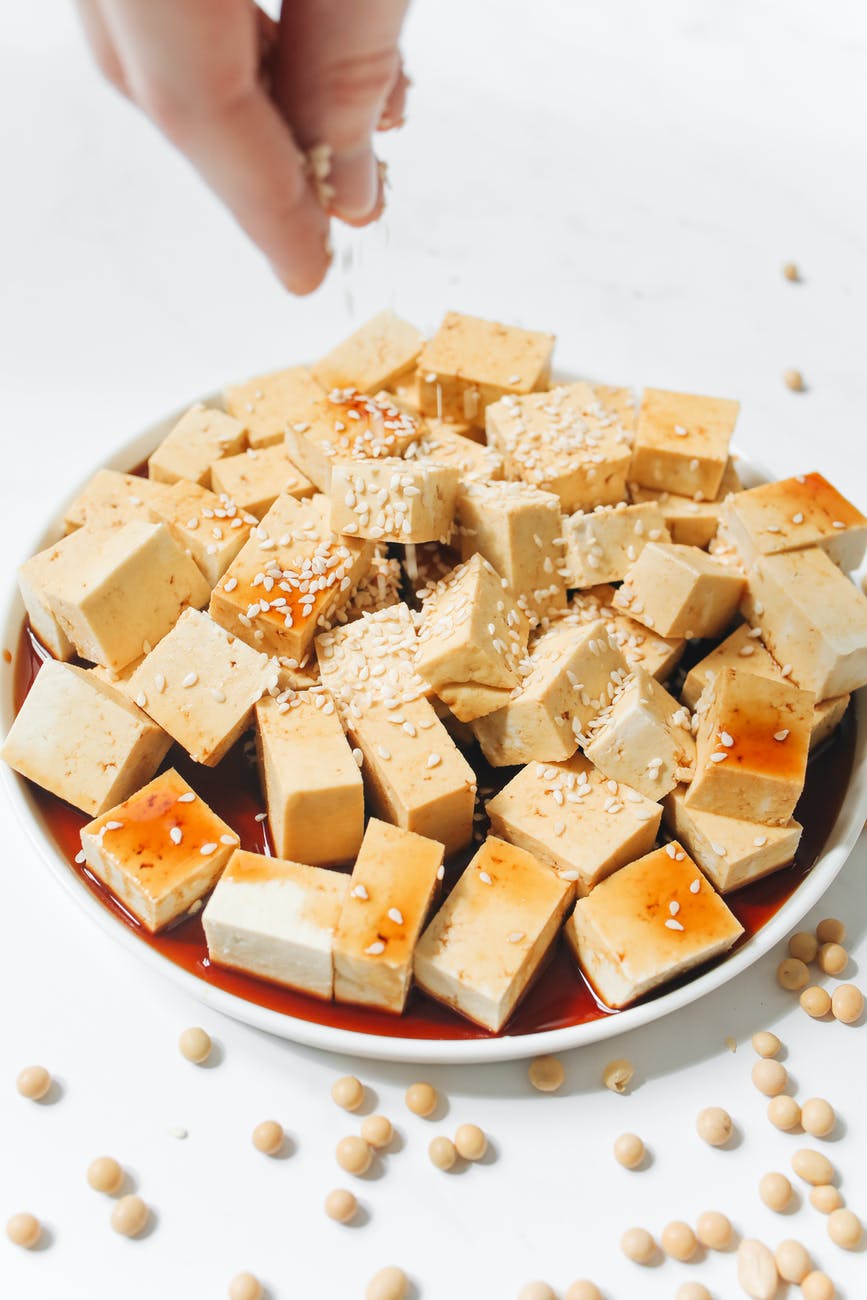
Omega-3 fatty acids are important for your baby’s brain and eye development. They can also help prevent certain birth defects, such as heart defects. Women with PCOS have worse insulin resistance levels. In such cases, Omega 3s are so necessary as they help to enhance insulin sensitivity, and in some cases, have also been shown to lower androgen levels in PCOS women.
Some Common Food Sources of Omega-3 fatty acids
- Canola Oil
- Chia seeds, flax seeds
- Walnuts
- Tofu
- Avocados
Directions
The RDA of omega-3 fatty acids for pregnant women is 300 mg DHA daily.
Other additional nutrients
You may also want to consider some other nutrients when selecting the best prenatal vitamin, after checking with your doctor, depending on your nutritional needs and any pre-existing health conditions with the polycystic ovarian syndrome (PCOS). Some of them are:
Iodine
Iodine helps in your healthy thyroid function and fertility. Once pregnant, it is also important for your growing baby’s thyroid and central nervous system development. Most women get their daily requirement of iodine (220 mcg) through their everyday diet like salt.
Read: Top 5 Iodine Rich Food – Vegetarian
Zinc
Zinc plays a role in ovulation, supports healthy estrogen and progesterone levels, and healthy oocyte development, and is essential for the optimal immune system and healthy cell division. Zinc is also good for PCOS as it can lower the insulin level. Your prenatal should contain between 15- 45 mg of zinc every day.
Vitamin B6
Vitamin B6 supports healthy levels of progesterone that creates a healthy uterine lining for implantation. Going into pregnancy with adequate B6 levels may help in controlling nausea (it can be supplemented at 50-100 mcg/day).
Magnesium
Magnesium may reduce fetal growth restriction and preeclampsia as well as helps increase the birth weight of the baby.
The link between PCOS and Stress
- Study shows that stress is believed to be an important part of PCOS.
- It is an invisible factor affecting many women with PCOS.
- Approximately 70% of women with PCOS are insulin-resistant (the cells in their bodies do not take in glucose the way they should.)
- Stress is hinted to be both – the cause of PCOS and the worsening of PCOS.
Causes for stress
- Obesity
- Difficulty in conceiving
- Constant reminders from family and your doctor to change to better and a healthy lifestyle
- Difficulty in adapting to healthier food habits
- Uncertainty
All these factors can make us feel out of control and send us into a tailspin of negative emotions. We need to recognize and validate within ourselves that such feelings are very normal to have, and we need to regain back our control and bounce back with positivity.
Read: Top 5 benefits of the wonder herb – Ashwagandha
Alternatives for beating stress and PCOS
Follow certain dietary and lifestyle changes is a smart thing to do to manage your PCOS like:
- eating the right foods at the right time,
- avoiding certain ingredients that are not PCOS-friendly,
- including high-fiber veggies, lean proteins, dairy, and gluten-free, whole foods.
These foods create a positive impact by managing the underlying hormonal imbalance associated with PCOS.
Ashwagandha powder is one such ayurvedic herb that helps to fight these PCOS-related symptoms by increasing stamina, balancing blood sugar, and mood swings, improve sleep and hormone production too.
Read: 5 best Ashwagandha supplement brands in India – 2022
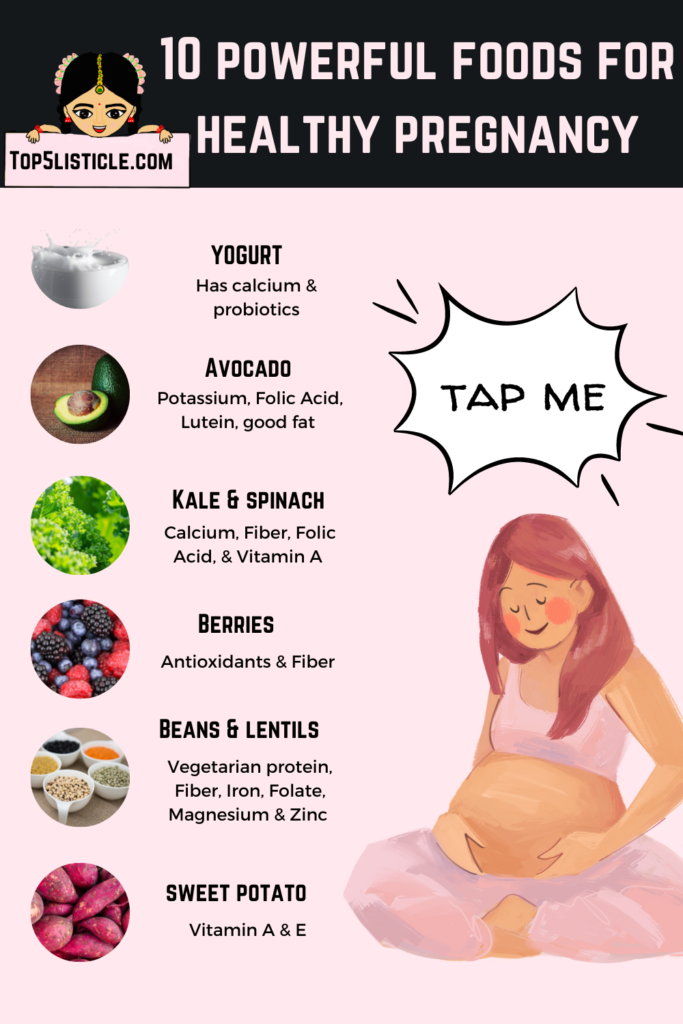
Importance of a prenatal vitamin for PCOS
Of course, food is undoubtedly our first source of nutrition. There is no substitute at all for a healthy diet as eating a healthy and varied diet during pregnancy is always good. But even the healthiest females have chances of missing out on a few vital minerals and vitamins that are crucial during pregnancy. Major studies show that most women of reproductive age are continually low in many nutrients including vitamin D, folate / folic acid, iodine, calcium, vitamin B6, and vitamin E – that are so crucial for the wellbeing of mom and her baby right from before conception until postpartum.
Prenatal vitamins are multivitamins that target the specific RDA (Recommended Daily Allowance) needed for pregnant women to help in supporting the health of the mom and her growing baby. They play a valuable role to
help you bridge the nutritional deficiencies that can cause pregnancy complications. If you enter into pregnancy nutrient-depleted, then you are going to have a hard time making up the sufficient nutrients. Prenatal vitamins are, therefore, an easy way to maintain both your body and your baby’s growth and development and to have an enjoyable and healthy pregnancy.
Prenatal Vitamins and PCOS: Does it increase your chance of getting pregnant?
If you are trying to conceive with PCOS and you are seeking some information on it from the Internet, you might get weighed down and overwhelmed with a million different suggestions and answers. Fortunately, early diagnosis of PCOS and leading a healthy lifestyle can help to reduce the risk of sustained complications such as type 2 diabetes and infertility to a great extent, especially with the help of a high-quality best prenatal vitamin.
Best prenatal vitamins are super important and great and necessary for you long before you even begin to prepare for life with the baby. While a healthy diet is the best way to get the vitamins and minerals that you would be needing, you might still fall short on certain key nutrients. This is where the best prenatal vitamin plays an important role in filling the nutritional gaps.
The Positive Impact of The Best Prenatal Vitamins For PCOS
Studies show that half the pregnancies, especially in the USA, are unplanned. This only implies that most women get into pregnancy nutrient-depleted even before realizing that they are pregnant. In such cases and many other cases, taking the best prenatal vitamins can create the following positive impacts:
- It improves both the mom’s and her baby’s health to a great extent.
- The benefits of taking the best prenatal vitamin, especially for PCOS women, improve your chances of getting pregnant enormously. The many important micronutrients in a prenatal vitamin do wonders for PCOS women. It helps in lowering the insulin and is important for oocyte quality, the quality of the egg, and its maturation in PCOS women.
- A best prenatal vitamin has a positive impact on fertility for PCOS.
- A prenatal vitamin also helps in reducing prenatal anxiety, and prenatal and postpartum depression. All these can cause a massive impact on a new mom.
- There is a reduced risk of pregnancy complications like pre-term deliveries, low birth weight babies gestational diabetes, hypertension, pre-eclampsia, and many more. All these can have mammoth health and safety consequences for both mom and her baby.
Top-Recommended Best Prenatal vitamins for PCOS
Each one of us has our preferences when it comes to food. Every pregnant person has unique nutritional needs. Each of our bodies processes and uses these nutrients a little differently, especially with a condition like PCOS. In such cases, prenatal vitamins can help to improve your chances of fertility with PCOS by filling the nutritional gaps.
There are so many different kinds of prenatal vitamins available on the market so that you can find the one that is the best suited for you and your nutritional needs. When you’re looking for a prenatal vitamin, it’s important to consider your individual needs, keeping purity and quality as one of your prime concerns. If you have PCOS, you may want to look for a prenatal vitamin that contains higher levels of certain nutrients like folic acid, calcium, and Vitamin D. But it is always advisable to get your doctor’s advice for the best possible results before selecting a prenatal vitamin.
Top 3 Best Prenatal Vitamins 2022
1. TheraNatal Complete Prenatal Vitamin
About the Brand
TheraNatal Complete prenatal vitamins come from Theralogix, the same company that makes Ovasitol, one of the best PCOS supplements.
TheraNatal Complete is one of our highly recommended overall best prenatal vitamins because of how all-inclusive its formula is. It is also best suited for women with PCOS who are trying to get pregnant. These specifically designed prenatal vitamins can be your ideal choice while trying to conceive and even during your early pregnancy as they fully support all your prenatal needs.
TheraNatal includes 1000 mcg of methylated folate, 12 mcg of B12, 27 mg of iron, and 3000 IU of vitamin D—five times the RDA dosage, but an amount that is still considered safe, and even necessary for pregnant women. Furthermore, TheraNatal also includes 300 mg DHA, the proper RDA for pregnant women, and 150 mg of choline.
It truly lives up to its name as a “complete” prenatal vitamin.
Key Features of TheraNatal Complete Prenatal Vitamins
- Fertility-focused
- •High-quality & most comprehensive prenatal vitamin during pregnancy
- Certified Gluten-Free & dye-free & dairy-free
- Take two tablets and one soft gel per day.
- A higher dose of Vitamin D than many other prenatal vitamins
- Specially formulated for women wanting to conceive with PCOS
- Independently tested and certified by NSF International & IFOS, in a cGMP registered facility.
Cons
- 2 tablets and 1 soft gel – might be difficult for women who are sensitive to swallowing pills
- Gelatin soft gels are made from certified BSE-free bovine gelatin.
- Does not contain DHA
2. Spring Valley Prenatal Multivitamin Gummies
About the brand
Spring Valley Prenatal Multivitamin Gummies are the simplest, best-tasting mixture of many of the vitamins & nutrients that are recommended for pregnant women and it contains DHA & folic acid, which some brands don’t seem to include. They have been particularly formulated to supply nutrients that support overall wellness before, during, and after pregnancy. Spring Valley prenatal vitamins are super easy to take. Just chew two gummies every day, Tadaa !!!
Spring Valley prenatal multivitamin gummies are packed full of good stuff – it meets over 100% of your daily vitamin B3 (20 mg), B6 (2.5 mg) and B12 (8 mcg) and folate (1333 mcg) , 92% of your daily vitamin A (1200 mcg).
Key features of Spring Valley Prenatal Multivitamin Gummies
- Delicious and easy to chew
- Tastes more like a candy
- Different tempting flavors like orange and strawberry
- Allows for easier absorption and is recommended for women with digestive issues
- Contains DHA which is crucial for your baby’s brain development
- Perfect amount of Vit A, B3, B6, and B12.
- No. of gummies: 90 (suggested use: 2 gummies daily)
Cons
- May cause side effects like upset tummy
- Extremely low in some crucial nutrients – vitamin C, vitamin D, and vitamin E
- Includes 3g of added sugars
3. Ovasitol Prenatal Vitamins
About the brand
Ovasitol prenatal vitamins come from Theralogix, the same company that makes Theranatal Complete prenatal vitamin, an overall complete prenatal vitamin for PCOS women.
Ovasitol is an exclusive high-quality supplement that combines a specific formulation of 40 parts myo-inositol to 1 part D-chiro-inositol that does wonders for a woman with polycystic ovarian syndrome. It simply means that the ovasitol prenatal vitamin is formulated with a special combination of the two inositols. This combination of the two inositols is more effective than just one form of inositol alone (40 to 1 ratio).
It is beneficial for any woman with PCOS as it has been shown to improve their insulin sensitivity, regulate periods, restore hormone balance, and thereby improve their fertility. Taking this prenatal vitamin with PCOS symptoms, chances of improving the egg quality and ovulation is certainly higher as it is the most important for any woman trying to conceive. Studies have shown that many women who took ovasitol have had a significant reduction in their cravings.
Key features of Ovasitol Prenatal Vitamins
- Contains the ideal 40:1 ratio (myo & D-chiro-inositol)
- Improves egg quality, ovulation and better menstrual regularity in PCOS women
- Helps in lowering insulin and glucose
- Reduces gestational diabetes risk
- Specially formulated for women wanting to conceive with PCOS
Cons
- Mild side effects like diarrhea or upset stomach
Read: Myo Inositol for PCOS Benefits & Best Inositol Supplement Brands
FREQUENTLY ASKED QUESTIONS
1. Why are prenatal vitamins important for PCOS?
Pregnancy can sometimes toss you into many such unexpected situations —nausea, low or no appetite, heartburn and there are days when pregnancy can make you feel so low in energy levels too. Unfortunately, women with PCOS have more chances of problems during pregnancy like gestational diabetes, and preterm labor and sometimes develop high chances of going into cesarean delivery. So taking a good quality prenatal vitamin is undoubtedly a smart decision.
2. I am confused between prenatal vitamins and preconception vitamins. How do I know the difference? Which is good for PCOS?
The intended purpose of a preconception vitamin is to set the stage for a healthy pregnancy. Taking a high-quality preconception vitamin, with a well-balanced diet, helps prepare your body for conception. It might be a smart idea for you to start taking a preconception vitamin as soon as you begin to start planning your family as they often have a higher level of some vital nutrients like folic acid which is a necessity for the early development of your baby.
Prenatal vitamins usually have a different nutrient profile than preconception vitamins and are specially designed to be taken during pregnancy and sometimes even post-pregnancy, as a woman, transitioning into pregnancy, has different nutrition requirements.
PCOS women would benefit from taking a high-quality prenatal vitamin as they need more help with the egg quality, and ovulation because of their hormonal imbalances. These prenatal vitamins can have a huge impact on fertility, your ability to conceive, and the healthy development of both you and your baby.
3. Can prenatal vitamins help me get pregnant if I have PCOS?
Taking your prenatal vitamin won’t make you any more likely to get pregnant. While prenatal vitamins can help in correcting the possible nutrient deficiencies to a good extent, which may help in conceiving a baby, they are not a guarantee for a confirmed pregnancy. You need to keep in mind that prenatal vitamins are just to supplement a healthy diet. There are other external factors like your daily food intake, self-care practices, and the amount of stress that you take that can determine the ability to conceive more than a prenatal vitamin. If you are overweight, taking measures to reduce your weight helps in regulating your menstrual cycle, and your chances to get pregnant increase immensely.
4. When should I start and stop taking prenatal vitamins if I have PCOS?
It is greatly recommended to find a high-quality prenatal vitamin to start at your earliest if you are thinking about getting pregnant. For PCOS women, taking it earlier is undoubtedly better as some of the important nutrients in the prenatal vitamin help to improve the egg quality and the fertility rate. Developing an early habit of popping a prenatal vitamin before getting pregnant not only makes you healthy before conception but also is the best way to ensure your body is getting all the nutrients it needs before you are pregnant.
Also, some nutrients are very crucial during the early stages of pregnancy like folic acid supplements that aid in preventing neural tube defects in your body. A healthy fetus is developed and you can be well assured that the baby is getting all the essential nutrients for its healthy development.
Your nutrient needs are higher while pregnant, but they are even higher while breastfeeding, not to mention when you are recovering your body postpartum. This is why it is recommended that women continue their prenatal vitamins for as long as they are breastfeeding as it helps to keep your body well-nourished and can produce nutrient-rich breastmilk too.
5. Do prenatal vitamins for PCOS have side effects?
Generally, prenatal vitamins are considered safe when taken as directed. However, certain specific vitamins or nutrients can cause mild side effects, primarily related to digestion.
It depends on the type of prenatal vitamins you are taking. While most prenatal vitamins do not cause many side effects, some of them might help you feel queasy. In some cases, iron in the prenatal vitamins may cause constipation. But in general, it is always better to drink plenty of fluids and keep yourself hydrated, ensure that you include more fiber in your diet while taking these prenatal vitamins, and keep checking with your gynecologist in case the side effects continue or worsen and you are concerned.
6. What are the different kinds of prenatal vitamins?
There are many different kinds of prenatal available over-the-counter when you walk into any pharmacy. You could also get it prescribed by your doctor or through websites like Amazon. Prenatal vitamins can be broadly categorized as:
Capsules or pills: If you want to get all the necessary vitamins and minerals in one prenatal vitamin, a whole pill or a whole capsule would be the best choice.
Powders and gummies: For women experiencing severe morning sickness, chewing a gummy would be an ideal choice, or powders that could be consumed as liquid vitamins may be a better option. But these may gummies and liquid vitamins could be missing some of the essential nutrients. It is advisable to read the nutrient labels before deciding on a gummy or powder.
Prescription: Some women may be prescribed a prenatal vitamin by their doctor depending on their nutrition level. Both prescription and over-the-counter vitamins will have all the necessary nutrients but their formulation may be different. For example, the prescription prenatal vitamin may have iron that causes less constipation or vitamin B6 to help with nausea.
7. What is the best brand of prenatal vitamins for PCOS?
Prenatal vitamins are easily available over-the-counter in almost any pharmacy. In general, you look for a prenatal that provides the required nutrients for you and your pregnancy such as folic acid, iron, and calcium. But for PCOS women, it is better to look for prenatal vitamins that would suit your nutritional needs with the advice from your gynecologist like vitamin D, choline, and vitamin C, based on your specific health history. Remember, prenatal vitamins are a complement to a healthy diet.
8. Will prenatal vitamins help to prevent gestational diabetes for PCOS women?
Women with PCOS are certainly at higher risk of developing gestational diabetes during pregnancy because PCOS women are insulin resistant and being pregnant increases glucose intolerance in the body. There are things that you can do to lower this risk, like taking the prenatal – Inositol and eating a balanced and healthy diet, and avoiding refined sugars for your PCOS.
However, depending solely on prenatal vitamins alone may not be enough. Your gynaecologist should monitor you throughout your pregnancy and keep an eye on your glucose tolerance, and blood pressure to avoid potential complications.
9. Which is better for women with PCOS – folate or folic acid?
Folic acid and folate are the same for the majority of women – a very crucial nutrient that is found in the prenatal vitamins taken before and during pregnancy to avoid complications like neural tube defects (serious birth defects of the brain and spinal cord).
Though the terms ‘folic acid’ and folate are used interchangeably most of the time, there is an important difference.
Folate is a naturally occurring form of vitamin B9 that can be found in good food sources like dark green leafy veggies like spinach, broccoli, asparagus, eggs, whole grains, and fruits like mangoes, kiwi, peanuts, and sunflowers to name a few. Folate is needed for the synthesis of DNA and RNA. It is added to foods and made into a supplement in the form of folic acid for better absorption than natural food sources. Hence folic acid is the synthetic form of folate, also known as, a B complex vitamin.
Your body absorbs the synthetic version of folic acid better than the natural one found in food, so even if you eat a balanced diet, a supplement is strongly recommended. To summarize, folic acid and folate are both necessary for a woman with PCOS.
Takeaway
To summarize, getting pregnant with PCOS is not impossible at all. It is certainly not a disease, it is just a condition that can be corrected and kept in control through better lifestyle changes like keeping fit, following a PCOS-friendly diet, and supplementing with key nutrients from the prenatal vitamins.
I hope this article on what ingredients to look for in a prenatal vitamin, the benefits of prenatal vitamins, why should it be taken, and how they can help you manage your PCOS symptoms gave you some good and insightful formation to think about. If you find this post useful, please share it with your friends and family too. Thank you for your patient reading! As a bonus, here’s a perfect PCOD-friendly evening snack just for you that would instantly make you feel better in health and spirits. It is called the “PCOD healing smoothie”.
Recipe for a PCOS healing smoothie

Ingredients needed:
- A small tomato
- Half a zucchini
- Half a beetroot
- Half a carrot
- A handful of mint and coriander leaves
- Few chia seeds soaked overnight
- 200 ml of coconut water
- About 2 blackish-brown raisins
Directions
- Just blend all the ingredients till a smooth consistency is formed.
- Top it up with the chia seeds and enjoy it with some healthy baked almonds. Tadaa!!!
Stay fit in both health and spirits, dear mommas!
Disclaimer
The above points are for general information purposes only. Please consult your doctor or a professional healthcare provider for a prenatal vitamin that is best suited for you and if you have any medical problems.

For more Health, Beauty, Fashion and Singapore related content, follow Top5listicle on Pinterest and Instagram.
Shweta Raamanujam, Founder of Top5listicle & T5L Digital
Subscribe to our Youtube Channel for DIY health and beauty videos!
Wish to get featured in our listicles?
Work with us(Award Winning Website) and improve your brand’s presence through our Digital Marketing and Influencer Marketing Expertise.
Check our portfolio here!
For more Health, Beauty, Fashion and Singapore related content, follow Top5listicle on Pinterest and Instagram.
Shweta Raamanujam, Founder of Top5listicle & T5L Digital
Subscribe to our Youtube Channel for DIY health and beauty videos!
Wish to get featured in our listicles?
Work with us(Award Winning Website) and improve your brand’s presence through our Digital Marketing and Influencer Marketing Expertise.
Check our portfolio here!
Recommended articles
- Top 5 Thyroid Symptoms not to be ignored
- 10 ways to lose weight fast at home
- The secret behind seed cycling for Hormonal balance
- Evening primrose oil amazing benefits for skin & hormonal balance










This is good sharing. Nice!
Very well written article after a thorough research. Keep it up
This is good sharing
Thank you for sharing so much!
This is very informative!
Very nice and helpful
This is so interesting
That’s an amazing set of tips for women with PCOS. Keep that coming.
That is alot of great info! Thank you so much for sharing!
such a detailed article! Thanks for sharing 🙂
This article is so useful
Nice sharing! I learn more things
Useful information about pregnancy
This is so useful
Thanks for sharing this. Helpful and nice
This is such a useful article ❤️
very detail information
had all of those too!!
Such a great sharing very informative
This is really informative!
This is awesome.. loved the post. Thx for sharing.
Oh that’s a very meaningful article
This is so informative.
Good tips for women.
Good to know this
This is really helpful and informative. Thank you for the lovely article ❤️
Your content is definitely helpful! ❤️
this is really great
This is so helpful! Will save this up
Seems like the product is worth trying. Appreciated in this info gathered.
This is really brilliant!!!
I used this a few before my first pregnancy
This is very useful information and lovely article
That is a lot of info and knowledge
This sounds really good!!
This is avery good article !
Very information piece ❤️
Thanks for all these information!
Such qn informative article
This is so informative, amazing article.